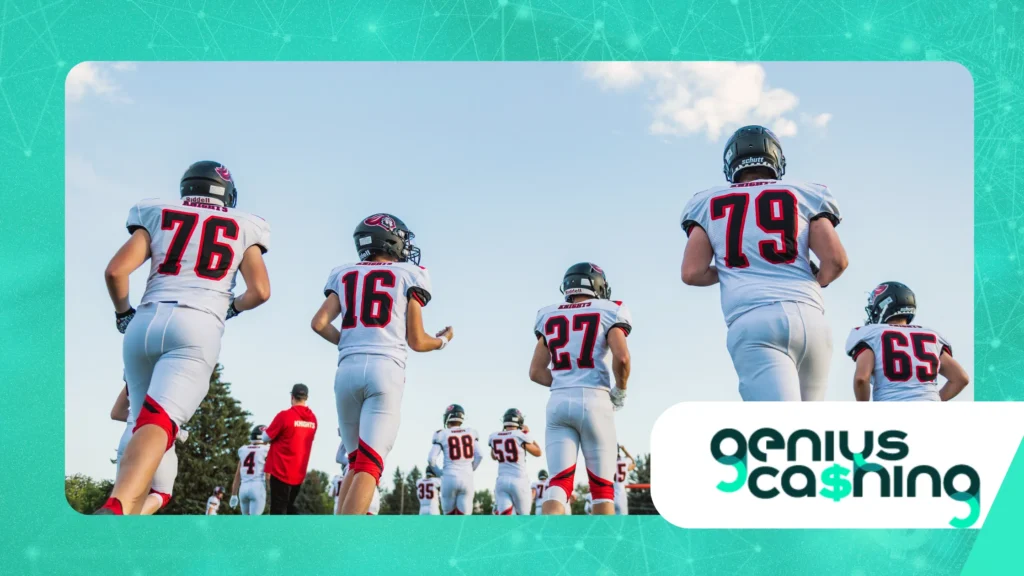Por qué los multimillonarios compran equipos deportivos como inversión

Anuncios
Los multimillonarios compran equipos deportivos como inversiones., una tendencia que se ha intensificado rápidamente hasta convertirse en un fenómeno global en 2025.
Esto no es simplemente una búsqueda de estatus ni un pasatiempo caro para la élite; es una estrategia de inversión calculada y sofisticada.
Olvídese de las ganancias efímeras del mercado bursátil; el nuevo patrón oro para los activos alternativos son las franquicias deportivas profesionales, que se revalorizan perpetuamente, gozan de ventajas fiscales y tienen un gran poder cultural.
El equipo deportivo contemporáneo se ha transformado de una institución cívica local en un conglomerado multiplataforma de medios, bienes raíces y entretenimiento. Los inversores inteligentes reconocen la durabilidad sin precedentes del contenido en vivo y sin guion.
No se trata de gastos; son apuestas estratégicas en una clase de activos con una trayectoria de apreciación de valor probada y resistente a las recesiones, lo que los hace muy atractivos para el capital privado y las personas más ricas del mundo.
Anuncios
¿Por qué la escasez de franquicias deportivas está disparando los precios?
La economía fundamental de la propiedad de equipos se define por la escasez y una barrera de entrada extremadamente alta.
Todas las principales ligas deportivas profesionales funcionan como monopolios estrictamente controlados, lo que limita la oferta de activos disponibles.
¿Qué convierte a un equipo deportivo profesional en un activo no correlacionado?
A diferencia de las acciones, los bonos o los bienes raíces, las valoraciones de los equipos deportivos a menudo se mueven independientemente de los ciclos económicos generales.
Los aficionados se mantienen fieles y el consumo de medios continúa, incluso durante las recesiones, lo que proporciona una resiliencia financiera que pocas otras inversiones pueden igualar.
Esta falta de correlación convierte a los equipos en una valiosa cobertura contra la volatilidad del mercado para una cartera diversificada.
La oferta de franquicias de primer nivel está estrictamente limitada por las reglas de la liga, lo que garantiza una intensa demanda para cualquier equipo que salga al mercado.
La competencia entre los ultrarricos simplemente garantiza que el precio mínimo aumente constantemente, casi independientemente del rendimiento del equipo.
++ ¿Son las bellas artes una mejor inversión que las acciones?
¿Cómo garantiza la burbuja de los derechos de los medios el crecimiento a largo plazo?
El valor de los derechos exclusivos de retransmisión de eventos deportivos en directo sigue disparándose, desafiando las tendencias de fragmentación de los medios de comunicación.
Las ligas se aseguran acuerdos mediáticos nacionales e internacionales multimillonarios a largo plazo, que proporcionan a los propietarios una renta vitalicia de reparto de ingresos garantizada.
Este flujo de caja predecible y creciente constituye la base de la valoración de un equipo, lo que hace que la decisión de invertir sea totalmente lógica.
Esta apreciación de los derechos de los medios actúa como una red de seguridad perpetua, lo que convierte la compra de una franquicia en una jugada fundamentalmente segura para la preservación del capital.
En consecuencia, la percepción de que Los multimillonarios compran equipos deportivos como inversiones. porque lo aprecian es absolutamente cierto.

¿Cuáles son los mecanismos financieros avanzados exclusivos de la propiedad deportiva?
El astuto multimillonario ve en un equipo deportivo una poderosa herramienta de ingeniería financiera, aprovechando los códigos tributarios y las oportunidades de desarrollo inmobiliario propias del sector.
El flujo de caja inmediato de una franquicia suele ser secundario frente a las ganancias de capital a largo plazo y las ventajas fiscales.
Lea también: Por qué las zapatillas vintage se están convirtiendo en inversiones millonarias
¿Cómo aprovechan los propietarios la depreciación y las ventajas fiscales?
Un beneficio financiero menos conocido pero crucial es la capacidad de depreciar el valor de los activos de un equipo, incluidos los contratos de los jugadores, a lo largo de varios años.
Este enorme gasto no monetario a menudo permite a los propietarios declarar importantes pérdidas contables, protegiendo así los ingresos de sus otros negocios rentables del pago de impuestos. Esto genera enormes ventajas en el flujo de caja.
Esta singular protección contra la depreciación reduce sustancialmente el coste efectivo de propiedad. Es una razón fundamental por la cual Los multimillonarios compran equipos deportivos como inversiones. con un enfoque en la preservación del capital a largo plazo.
Leer más: Cómo reaccionan los inversores a los cambios en las tasas de interés y la inflación a nivel mundial
¿Por qué el desarrollo de espacios y bienes raíces es un motor clave de ingresos?
La propiedad de los equipos deportivos modernos a menudo incluye el control o la propiedad del estadio y los terrenos circundantes.
Los propietarios utilizan al equipo como pilar para desarrollar lucrativos distritos de entretenimiento de uso mixto con hoteles, oficinas y comercios. Esta estrategia genera diversas fuentes de ingresos, más allá de los días de partido, que superan con creces la venta de entradas.
Un propietario compra un equipo de béisbol en apuros e invierte simultáneamente en el desarrollo de un enorme complejo de entretenimiento urbano alrededor del nuevo estadio.
Las ganancias provenientes del desarrollo comercial de 25 acres, ubicado en terrenos adyacentes, eventualmente superan los ingresos operativos totales del propio equipo, convirtiendo a la franquicia en una valiosa inversión inmobiliaria.
¿Cómo actúa un equipo deportivo como plataforma global de marketing e influencia?
Más allá de las meras métricas financieras, el poder intrínseco de una marca deportiva global ofrece beneficios intangibles, pero invaluables, que las inversiones tradicionales simplemente no pueden replicar.
Poseer una franquicia importante otorga acceso a un círculo de influencia de élite y a una marca global sin parangón.
¿Cuál es el valor de la prima por "activo trofeo"?
Ser propietario de un equipo deportivo proporciona el máximo “activo trofeo”, un símbolo de estatus muy visible y publicitado que confiere relevancia cultural instantánea.
Este prestigio puede traducirse en ventajas comerciales en otros sectores, brindando a un multimillonario acceso a poderosos círculos políticos y empresariales. ¿Puede su cartera de acciones propiciar una reunión privada con un jefe de Estado?
La posibilidad de recibir a importantes clientes corporativos, políticos y figuras de los medios de comunicación en un palco exclusivo genera oportunidades de networking invaluables. El equipo se convierte en la plataforma definitiva para el marketing y el desarrollo de relaciones.
¿Cómo sirven las franquicias deportivas como laboratorio de pruebas de medios digitales?
Los equipos se mantienen constantemente a la vanguardia en cuanto a participación digital, tecnología de streaming y monetización a través de plataformas como NFT y alianzas con casas de apuestas deportivas.
Los propietarios pueden utilizar la franquicia como un campo de pruebas masivo y en tiempo real para la tecnología que puedan poseer a través de sus otras empresas.
Un multimillonario tecnológico compra un club de fútbol europeo e implementa su propio sistema de venta de entradas basado en blockchain y una plataforma de tokens para los aficionados del equipo.
Esto sirve como prueba de concepto para su empresa tecnológica subyacente, generando datos valiosos e impulsando la adopción antes de que el producto se lance a nivel mundial.
¿Qué revelan las estadísticas de crecimiento sobre esta clase de inversión?
Los datos históricos validan de manera contundente el proceso de decisión que sustenta el porqué Los multimillonarios compran equipos deportivos como inversiones..
Su apreciación de valor ha superado sistemáticamente los índices de referencia tradicionales del mercado de valores durante la última década.
¿Dónde apuntan las evidencias a un crecimiento continuo del valor?
La tendencia alcista en las valoraciones se sustenta en la continua expansión de las ligas, la ya mencionada inflación de los derechos de transmisión y el creciente alcance global de ligas como la NBA y la NFL. Se trata de un crecimiento estructural fundamental.
Consideremos las tasas de crecimiento recientes. Estadística demostrar que el valor promedio de los equipos de la NBA aumentó a una tasa de crecimiento anual compuesta (CAGR) promedio de aproximadamente 17% entre 2010 y 2020, superando significativamente al S&P 500 durante el mismo período.
Estos datos convincentes son la razón Los multimillonarios compran equipos deportivos como inversiones..
¿Cuál es la perspectiva a largo plazo del deporte como activo financiero?
El mercado está madurando, con firmas de capital privado y fondos soberanos que compiten cada vez más por participaciones minoritarias.
Esta mayor competencia institucional valida la clase de activos e impulsa las valoraciones aún más, lo que indica un fuerte crecimiento continuo hasta 2025 y más allá.
Comprar un equipo deportivo es como comprar una propiedad frente al mar en una ciudad donde el litoral es limitado y la demanda está en auge.
Puede que hoy pagues un precio superior, pero como ya no se puede crear más “costa”, la escasez y el atractivo de este activo garantizarán inevitablemente su apreciación a largo plazo, independientemente de las fluctuaciones económicas menores.
| Liga Deportiva Mayor (América del Norte) | Valor promedio del equipo (2024 est.) | Tasa de apreciación promedio a 5 años (2019-2024) | Principal generador de ingresos |
| NFL (Fútbol Americano) | Acuerdos de derechos de medios nacionales | ||
| NBA (Baloncesto) | Licencias y patrocinios globales | ||
| MLB (béisbol) | Contratos y bienes raíces de RSN locales |
¿Por qué es el momento adecuado para la próxima ola de inversión deportiva?
La confluencia de la disrupción tecnológica, las normas favorables a la propiedad de las ligas y la expansión del mercado global ha creado un escenario ideal para los inversores con grandes recursos. Esta clase de activos se está encaminando hacia una mayor financiarización.
¿Cómo se están adaptando las ligas para atraer capital financiero?
Muchas ligas, conscientes de las enormes necesidades de capital que requieren los nuevos estadios y la expansión global, han flexibilizado las normas de propiedad, permitiendo a inversores institucionales, como las firmas de capital privado, adquirir participaciones minoritarias.
Esta inyección de disciplina financiera profesional y capital está profesionalizando aún más las operaciones comerciales.
Este cambio, impulsado por el aumento de las valoraciones, garantiza que Los multimillonarios compran equipos deportivos como inversiones. junto con socios financieros sofisticados, reforzando la credibilidad de esta clase de activos.
¿Cómo afectarán la expansión global y las nuevas ligas al valor futuro?
Las ligas están expandiendo rápidamente su presencia global, estableciendo partidos internacionales y cortejando activamente a aficionados extranjeros, especialmente en Asia y Europa.
Esto amplía enormemente el mercado potencial para productos, medios de comunicación y patrocinios. ¿De verdad crees que esta trayectoria de crecimiento global ha alcanzado su punto máximo?
Cada nuevo aficionado que se suma en el extranjero se traduce en un mayor valor para los derechos centralizados de medios y patrocinio.
Este motor de crecimiento global garantiza que el negocio del deporte siga siendo uno de los sectores de inversión más atractivos y fiables.
Conclusión: Las nuevas reglas del juego
La narrativa que Los multimillonarios compran equipos deportivos como inversiones. Lo de "puramente por ego" está obsoleto.
La realidad actual es que una franquicia deportiva representa una inversión de valor único: un activo escaso con una renta vitalicia mediática garantizada, importantes ventajas fiscales y una plataforma para el apalancamiento inmobiliario y tecnológico.
Se trata de una clase de activos que proporciona tanto seguridad financiera como una influencia sin precedentes. Hemos entrado en una era en la que los equipos son considerados las inversiones estables, con potencial de revalorización y a largo plazo que realmente son.
Ahora que comprendes las verdaderas motivaciones financieras, Comparte tu experiencia o predicciones sobre la próxima gran liga que experimentará un aumento significativo en la valoración en los comentarios a continuación.
Preguntas frecuentes (FAQ)
¿Un equipo necesita ganar para que aumente su valor?
No necesariamente. Si bien ganar ayuda a la venta de entradas locales y a la participación de los aficionados, la valoración de un equipo está impulsada principalmente por los derechos de transmisión de la liga, que se comparten por igual, y por la escasez fundamental del activo.
Los New York Knicks, por ejemplo, han sido consistentemente una de las franquicias más valiosas de la NBA a pesar de sus resultados irregulares en la cancha.
¿Existen riesgos al invertir en un equipo deportivo?
Sí. Los principales riesgos incluyen posibles conflictos laborales (cierres patronales/huelgas), que pueden paralizar las operaciones y los ingresos; riesgos políticos asociados con la financiación pública de nuevos estadios; y la gran iliquidez del activo, ya que la venta de una franquicia importante puede tardar meses o años.
¿Por qué los dueños de equipos suelen perder dinero anualmente en sus operaciones?
Esta “pérdida” suele ser una ficción contable impulsada por la enorme depreciación no monetaria de los contratos de los jugadores y otros activos.
Si bien el estado financiero muestra una pérdida a efectos fiscales, el propietario a menudo obtiene una ganancia en efectivo significativa y, lo que es más importante, un aumento masivo en el valor total de mercado del equipo.
¿Puedo yo, que no soy multimillonario, invertir en equipos deportivos?
Sí, a través de dos vías principales: 1) Comprando acciones de equipos deportivos que cotizan en bolsa (por ejemplo, las acciones de seguimiento del Manchester United o de los Atlanta Braves); o 2) Invirtiendo en fondos de capital privado que se especializan en adquirir participaciones minoritarias en franquicias deportivas, aunque estos suelen requerir un alto patrimonio neto.
